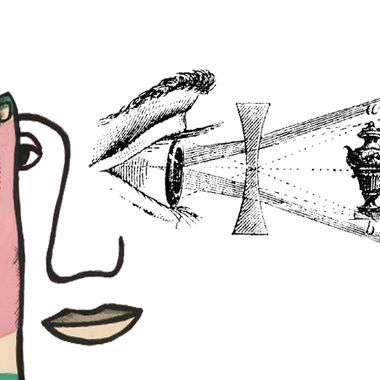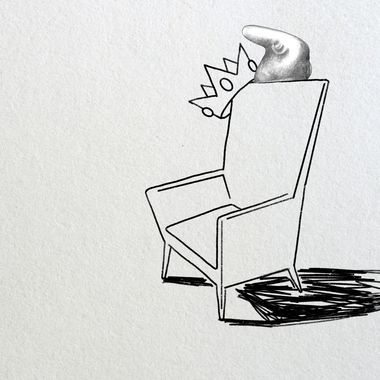
A decree by President Armen Sarkissian on August 2, 2021, formally re-appointed Nikol Pashinyan as the Prime Minister of Armenia, following the results of the June 20 parliamentary election. Pashinyan had remained in the role in an acting capacity since his formal resignation on April 25, which was needed to trigger an early election. The Constitution stipulates that the designated Prime Minister candidate of the parliamentary majority is appointed by the President after an election (without the need for a vote in Parliament).
The 12 ministerial posts have now been filled, as some ministers were shuffled around. Most notably, the post of Foreign Affairs Minister remained vacant almost three months after the resignation of Ara Ayvazyan on May 27. Initially, the duties of the Foreign Affairs Minister were being carried out by Deputy Foreign Minister Armen Grigoryan, who used to be the Secretary of the Security Council (SC). On August 19, Ararat Mirzoyan was officially appointed to the post of Foreign Affairs Minister. Armen Grigoryan was reappointed as the Secretary of the SC.
In Armenia, references to “the Government,” with a capital-G, are specific to the executive branch, i.e. the Cabinet. Article 147 of the Constitution outlines that the Government is composed of the Prime Minister, Deputy Prime Ministers, and Ministers. To be eligible, the same restrictions apply as those for Members of Parliament, including being at least 25 years of age and not holding any other citizenships for the previous four years. While most cabinet ministers are included on a political party’s candidate list, they cannot simultaneously serve as an MP and cabinet minister; they need to resign their seat as an MP, which is then reassigned to the next candidate on the party’s list. While the new Cabinet includes many familiar faces, it also shuffles several portfolios.
Mher Grigoryan, Deputy Prime Minister
Mher Grigoryan, 49, was first appointed as Deputy Prime Minister in May 2018, immediately after Nikol Pashinyan first became Prime Minister. He has been reappointed to the role. A banker, Grigoryan previously worked at Armenia’s Central Bank, AmeriaBank and HSBC. He has served as Executive Director of Inecobank, Deputy Executive Director of VTB Bank, Chairman and CEO of Ardshinbank and a consultant with the World Bank. Grigoryan has been awarded the Anania Shirakatsi medal for his contributions in the field of economy.
Suren Papikyan, Deputy Prime Minister
Suren Papikyan, 35, served as Minister of Territorial Administration and Infrastructure prior to his recent appointment to the post of the Deputy Prime Minister, replacing Tigran Avinyan, who had been in the role since May 2018. Papikyan is the President of the Civil Contract Party’s Executive Council and was a co-founding member of the party back in 2015. He studied history at Yerevan State University, later pursuing his PhD in history from the State University of St. Petersburg. He worked as a history teacher at several schools before becoming a policy consultant for the Yelk Caucus in the Yerevan City Council in 2017.
Ararat Mirzoyan, Minister of Foreign Affairs
Mirzoyan, 41, served as the Speaker of Parliament prior to his recent appointment to the post of Minister of Foreign Affairs. He holds a PhD in History. Mirzoyan lectured at Yerevan State University, was a junior researcher at the Armenian Genocide Museum-Institute and a chief archivist of the Department of Socio-Political Documents of the National Archives of Armenia. He also worked as a coordinator of the voter information program with the International Foundation for Electoral Systems, head of the research group of the Aurora and 100 Lives initiative of the IDEA Foundation, and as an expert on political parties and strategic planning of the Netherlands Institute for Multi-Party Democracy. Mirzoyan is the founding member of the Civil Contract Party and was elected to Armenia’s Parliament in 2017 from the territorial electoral list for the Yelk Bloc. Prior to his election to the post of the Speaker of Parliament, Mirzoyan also served as Armenia's First Deputy Prime Minister.
During the early hours of November 10, 2020, after the trilateral agreement was signed between the leaders of Armenia, Azerbaijan and Russia, Mirzoyan was severely beaten by a group of protesters after he was dragged from his car near the parliament building. He was hospitalized and underwent surgery.
Anahit Avanesyan, Minister of Health
Anahit Avanesyan, 40, was the only female cabinet minister prior to the election and continues to hold that distinction as she was re-appointed to the role of Minister of Health. Holding an LLM degree from the American University of Armenia, Avanesyan was first appointed Deputy Minister of Health in 2018, only leading the portfolio after Arsen Torosyan moved on to become Chief of Staff to the Prime Minister in January 2021. Previously, Avanesyan worked at the legal department of the Foreign Ministry and then in the pharmaceutical industry.
Karen Andreasyan, Minister of Justice
Karen Andreasyan, 44, is one of the new faces in Cabinet, replacing Rustam Badasyan as Minister of Justice. He has a PhD in law, is a graduate of the Yerevan State University and University of California, Berkeley. Andreasyan was Armenia’s Human Rights Defender between 2011 to 2016. Prior to being the Ombudsman, he has worked at a number of state bodies, including the Yerevan Municipality, the Ministry of Defense, the Court of First Instance and the Constitutional Court. He taught administrative law at the Police Academy and lectured at Yerevan State University. Andreasyan also worked as a Senior Research Fellow at the Center for Sociological and Legal Studies at Oxford University, as an international expert and consultant at the London-based Article 19 human rights organization and at Open Society Justice Initiative in Hungary. Andreasyan has been a member of Armenia’s Chamber of Advocates since 2006.
Vahram Dumanyan, Minister of Education, Science, Culture and Sport
Vahram Dumanyan, 59, first became Minister of Education, Science, Culture and Sport in November 2020, replacing Arayik Harutyunyan. He has been re-appointed to the role following the recent election. He has a PhD in Physical and Mathematical Sciences. For over 30 years, Dumanyan worked at the Faculty of Informatics and Applied Mathematics at Yerevan State University as a lecturer and then as Dean. Throughout his career, Dumanyan conducted research at Lomonosov Moscow State University, Banach International Mathematical Center in Warsaw, and at the University of Trier and Paderborn in Germany. He was awarded with the gold medals of Yerevan State University and the Ministry of Education and Science.
Gnel Sanosyan, Minister of Territorial Administration and Infrastructure
Gnel Sanosyan, 38, took over as regional governor of Gegharkunik in October 2018 from Ishkhan Saghatelyan (now an opposition Deputy Speaker of Parliament) when the Armenian Revolutionary Federation was removed from the first Pashinyan coalition government. He remained in that role until August 2, 2021, when he was appointed to be the new Minister of Territorial Administration and Infrastructure, taking over from Suren Papikyan. He holds a Masters degree in Geography from Yerevan State University. Sanosyan has also previously served as the Deputy Minister of Environment (at the time, it was called the Ministry of Nature Protection). Between 2007 to 2010, he worked as a lecturer at the Northern University of Yerevan.
Romanos Petrosyan, Minister of Environment
Romanos Petrosyan, 42, is a graduate of the Faculty of Geology at Yerevan State University. He has worked at a number of companies and in different sectors, including Akhtala Mining and Processing Enterprise, Basis construction company, SA Enterprises construction holding and Orange Armenia (a former telecom provider that was bought by UCom in 2015). From 2018 to 2020, Petrosyan was the governor of Kotayk region. He has served as Minister of Environment since July 2020, after a lengthy vacancy following the resignation of Erik Grigoryan. Petrosyan has been re-appointed to the role.
Narek Mkrtchyan, Minister of Labor and Social Affairs
The portfolio of Labor and Social Affairs has been vacant since April 23, 2021, when Mesrop Arakelyan resigned as minister. Narek Mkrtchyan, 32, has joined Cabinet and taken on the post. Previously an MP with the My Step Caucus, Mkrtchyan holds a PhD in history and is a graduate of the Yerevan State University and the American University of Armenia (AUA). Since 2018, he has been coordinating the Small States Initiative at the Department of Political Science and International Relations at AUA. Mkrtchyan has also lectured at a number of universities and research centers in the United States, Germany, France, Norway, Iceland, Estonia and Georgia. Mkrtchyan is the youngest member of the new Cabinet.
Vahan Kerobyan, Minister of Economy
Vahan Kerobyan, 45, is continuing on as the Minister of Economy, a position he has held since cabinet changes following the 2020 Artsakh War in November 2020. He graduated from the Faculty of Mathematics at Yerevan State University. Between 2012 to 2020, Kerobyan was the Founding Director of Menu Group which provides food delivery services, similar to UberEats. The company operates in Armenia as menu.am and is represented in Georgia and Belarus as well. Between 2006 to 2012, Kerobyan was the executive director of the Star supermarket chain, which eventually declared bankruptcy. Prior to that, he worked as a chief specialist at the information department of the government, chief computer specialist at Hayastan All-Armenian Fund and at HSBC Bank.
Andranik Piloyan, Minister of Emergency Situations
Andranik Piloyan, 59, also joined Cabinet as Minister of Emergency Situations after the 2020 Artsakh War, replacing Feliks Tsolakyan. He has been re-appointed to the role. He had a long career with the Armenian Armed Forces and participated in both wars in Artsakh. He held positions of a Commander and Deputy Commander of a number of military units and earlier in his career headed the intelligence of a military unit. In 2020, he was awarded the title of National Hero.
Tigran Khachatryan, Minister of Finance
Tigran Khachatryan, 51, served as Minister of Economy from 2018 to November 2020. With his appointment as Minister of Finance, he re-enters Cabinet, replacing Atom Janjughazyan. From 1995 to 2006, Khachatryan held various positions at the Ministries of Finance and Economy, including Chief Economist, Head of the State Budget Revenue Department, Head of the Tax Policy Department as well as Deputy Minister of Finance and Economy. For over ten years starting from 2006, Khachatryan transitioned to the private sector and started working for the Vallex Group of Companies as Chief Financial Officer. Since 2016, he has been at the Ministry of Economic Development and Investments (the former name of the Ministry of Economy), first as the Deputy Minister and then as the Minister.
Vahagn Khachaturyan, Minister of High-Tech Industry
Vahagn Khachaturyan, 62, is an economist and one the newest members of the Pashinyan administration, replacing Hayk Chobanyan as Minister of High-Tech Industry. In the early 1990s, he was a member of the Yerevan City Council and then the Mayor of the capital. Between 1995 to 1999, Khachaturyan was also a Member of Parliament, joining Levon Ter-Petrosyan’s Republic Caucus. He is the Founding member of the ARMAT Center for Democracy and Civil Society Development and the Vice President of the Center for Political Science, Law, and Economic Research.
Arshak Karapetyan, Minister of Defense
Arshak Karapetyan, 54, replaces Vagharshak Harutyunyan as Minister of Defense. He studied at military academies in Armenia and Russia. Between 1993 to 2018, Karapetyan served in the Armenian Armed Forces. Prior to his appointment to the post of Defense Minister, he served as Adviser to the Prime Minister and then as First Deputy Defense Minister.
Other Appointments
Arayik Harutyunyan, Chief of Prime Minister’s Staff
Arayik Harutyunyan, 42, is a founding member of the Civil Contract Party and a former President of its Executive Council. In 2018, he was appointed Minister of Education, Science, Culture and Sport. In 2020, he was appointed as Chief Adviser to the Prime Minister. He will now take the role of Chief of Staff at the Prime Minister’s Office, previously held by Arsen Torosyan. He studied at Yerevan State University, the Damascus Institute for Foreigners and the Institute of Oriental Studies of the Russian Academy of Sciences. His PhD dissertation was “Turkish-Syrian Relations in the 1980s: The Beginning of the 21st Century.” He lectured at Yerevan State University and is among the founders of a civic initiative against allowing foreign-language schools.
Armen Grigoryan, Secretary of the Security Council
Armen Grigoryan, 38, is the Secretary of Armenia's Security Council, who briefly served as Deputy Foreign Affairs Minister from July to August 2021. He now resumes his position as Secretary of the Security Council after Ararat Mirzoyan was officially appointed as Foreign Affairs Minister. Grigoryan holds a Master's degree in Political Science and International Affairs from the American University of Armenia. He worked at the Counterpart International office in Armenia as a civil society officer and at the Transparency International Anti-Corruption Center as a project coordinator of the electoral programs. He also worked as a visiting lecturer at the Russian-Armenian University. Grigoryan has published articles on Armenia's democratization, civil society development, economic and political as well as geopolitical-international topics in several local media outlets. He is a member of the Civil Contract Party.
Rustam Badasyan, Head of the State Revenue Committee
Rustam Badasyan, 30, is a lawyer and has been the Justice Minister since 2019. He holds a Masters degree from the National Academy of Sciences. Prior to his appointment, Badasyan served as a leading specialist and investigator at the State Revenue Committee, a senior lawyer at Virtulex Law Office, a partner at Concern-Dialog and then as the Deputy Head of the State Revenue Committee. He will now lead the State Revenue Committee.
Lilit Makunts, Armenia’s Ambassador to the United States
Lilit Makunts, 38, has been appointed Armenia’s Ambassador to the United States, after a long period of speculation. She has a PhD in Philological Sciences and has participated in a summer diploma program at Tufts University’s Fletcher School of Law & Diplomacy. She was an associate professor at the Russian-Armenian University and worked with the U.S. Peace Corps. Following the Velvet Revolution, Makunts was appointed Minister of Culture. She headed the ministry until it was dissolved and merged with the Ministry of Education. She was elected as a Member of Parliament in the December 2018 parliamentary election, after which she served as House Majority Leader for the My Step Caucus.
National Assembly
Alen Simonyan, Speaker of Parliament
Alen Simonyan, 41, was the Deputy Speaker of Parliament following the 2018 early parliamentary election. Prior to his appointment, Simonyan was a member of the Yelk Caucus at Yerevan City Council, and then was elected to Parliament as part of the Yelk Alliance. Simonyan holds a Masters degree in politics from the National Academy of Sciences. Before his involvement in politics, Simonyan was engaged in entrepreneurial activities, worked as a producer at a number of TV companies and was the editor-in-chief of Ararat magazine. He is a founding member of the Civil Contract Party.
Hakob Arshakyan, Deputy Speaker of Parliament
Hakob Arshakyan, 36, has been the Minister of High-Tech Industry since 2018. He resigned in 2021 after a video started circulating on social media, showing him assaulting a journalist. Paylak Fahradyan, editor-in-chief of the irakanum.am news website, clarified that he approached Arshakyan to ask why the Minister was having his lunch at a cafe during working hours when he was supposed to be at work.
Arshakyan holds a Masters degree in Computer Systems and Informatics from Yerevan State Engineering University. Aside from his work experience in the public sector, Arshakyan also worked as a Systems Engineer and then as Regional Director at National Instruments and as Executive Director at Araxis Engineering company. He is a founding member of the Civil Contract Party and will now serve in the legislative branch as a Deputy Speaker of Parliament.
Ruben Rubinyan, Deputy Speaker of Parliament
Ruben Rubinyan, 31, has experience working both as part of the executive and legislative branches. He was the Chair of the Parliamentary Standing Committee on Foreign Relations and, prior to his transition to the National Assembly, was the Deputy Foreign Affairs Minister. Rubinyan is a founding member of the Civil Contract Party. He holds Masters degrees from University College London in Politics and Security as well as from Jagiellonian University in European Studies. While Armenia has never had a female Speaker of Parliament, the recent appointments mark the first time since 2012 that there is not one female Deputy Speaker, as Lena Nazaryan will no longer serve in that role.
Ishkhan Saghatelyan, Deputy Speaker of Parliament
Ishkhan Saghatelyan, 39, is a member of the Armenia Alliance, the largest opposition faction in the new Parliament. Article 104 of the Constitution requires one of the Deputy Speakers to be elected from among the opposition factions. Saghatelyan holds a PhD in History. From 2009 to 2012, Saghatelyan worked in the National Assembly as an assistant to a Member of Parliament, then as an Adviser to the Minister of Nature Protection. For a brief period in 2018, Saghatelyan was the regional governor of Gegharkunik, his home region. He is a member of the Supreme Body (i.e. Executive Council) of the Armenian Revolutionary Federation.
After the signing of the November 9 trilateral agreement that ended the 2020 Artsakh War, Saghatelyan has been one of the most vocal critics of PM Pashinyan and his administration. He was an active member of the Homeland Salvation Movement that had been demanding the resignation of the PM. For months after the signing of the agreement, the coalition held protests, rallies and acts of civil disobedience. The coalition proposed setting up a National Movement that would lead negotiations within the framework of the truce agreement to prevent what they said was the impending loss of Armenian statehood, initiate post-war recovery efforts and hold fresh elections within a year through a constitutional process.
Avinyan Not In the Picture
Thus far, Tigran Avinyan, the former Deputy Prime Minister has not taken any position in the new government. He is a founding member of the Civil Contract Party and is considered to be a senior member after Nikol Pashinyan. Along with Mher Grigoryan, Avinyan was appointed Deputy Prime Minister in May 2018. Between 2017 to 2018, Avinyan was a member of the Yelk faction of Yerevan City Council.
On the day that most of Cabinet was appointed, Avinyan wrote a Facebook post, outlining that the reason he did not participate in the election campaign was that he disagreed with the party’s candidate list, citing the separation of business from politics as a foundational principle. Though the post did not explicitly name him, it appears to be a reference to the inclusion of Khachatur Sukiassian (nicknamed Grzo), who heads the Sil Group of Companies, on Civil Contract’s candidate list. The post said that “Our struggle is based on the principles of democracy, freedom and the elimination of corruption.” Avinyan served as the Warden of the Special Commission during the State of Emergency triggered by the COVID-19 pandemic, during which time controversial measures such as a ban on media reporting information not provided by the Government, and the mass collection of phone record metadata were instituted.
* Editor's Note: This article was updated on August 19, 2021, to reflect the changes that took place following publication.
Related Articles
It Has to Be Said: Points of Convergence
By Maria Titizian
After a bitter election campaign, three political forces are poised to enter parliament. What they do and how they behave will determine the future of the country.
Remedial Secession in the Programs and Statements of the Political Forces Competing in Armenian Elections
By Sossi Tatikyan
After the shocking defeat in the war, the use of the notion of “remedial secession” has not been consistent, neither by the authorities nor by other political forces in Armenia. Sossi Tatikian explains.
From National to Municipal Elections
By Hovhannes Nazaretyan , Harout Manougian
Following the early parliamentary election that saw the Civil Contract hold on to power, upcoming municipal elections will give opposition parties, including those with no seats in parliament, a shot at gaining footholds throughout the country.
Political Culture | Issue N8

Ahead of Armenia's 2021 Parliamentary Election, EVN Report’s May issue, titled “Political Culture,” looked back on the evolution of democratic expression in Armenia, from the first parliamentary election in 1919 to political cartoons to the modern day.
A Wave of New Political Parties Crashes Onto the Scene
By Harout Manougian
Thirty-one founding congresses for new political parties have been scheduled since the start of the year, a quantity not seen since the country gained independence 30 years ago.
The Unbearable Lightness of Democratizing: Armenia’s Political Culture from Velvet Euphoria to Post-War Melancholy
By Nerses Kopalyan
Tracing political cultural trends that have been formulating in Armenia through three short, yet fastly-developing, stages: prior to the Velvet Revolution, subsequent to the Velvet Revolution, and after the 2020 Artsakh War.
The 1919 National Elections
By Mikael Yalanuzyan
Although the short-lived First Republic of Armenia is often viewed through the prism of the government’s activities, such as military operations, state defense, social issues, and foreign policy, the electoral processes at the time parallel today’s reality.
Latest Poll Numbers Imply a False Majority Election Outcome
By Harout Manougian
The latest phone survey about the coming parliamentary election in Armenia was recently released. The seat projection arising from the poll is problematic in that it foresees a false majority scenario. Harout Manougian breaks it down.
Caricature: From the Soviet Era to Independence
By Mikael Yalanuzyan
Political caricature was an inseparable companion of the newspapers that were being formed under the new freedoms of speech and the press of independent Armenia.
See Our Other Magazine Issues Here











